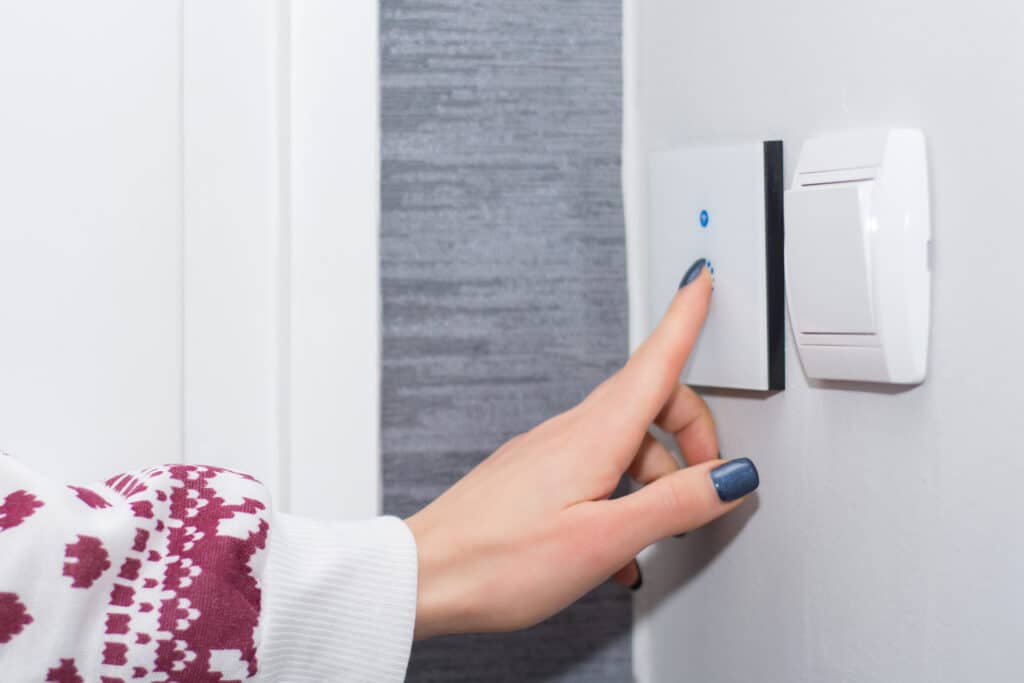Are you a homeowner considering smart lights and comparing smart bulbs vs. smart switches? If you’re stuck deciding between smart bulbs and smart switches, you’re not alone. Both options have their benefits, but which one is the best fit for your needs? In this post, we’ll break down the key differences between smart bulbs and smart switches, helping you decide which one will make your life easier and more convenient. Whether you’re looking to boost convenience, save energy, or add a little ambiance to your space, we’ll cover everything you need to know.
Smart Bulbs vs. Smart Switches: Which is Best for Your Home?
So, you’re deciding between smart bulbs vs. smart switches for your home. Before buying, here’s a quick comparison guide to make a better decision.
What are smart bulbs?
Smart bulbs are a type of consumer-grade smart light. They’re typically LED bulbs that integrate with virtual assistants like Alexa and Google Home. These smart bulbs usually have modern features like more energy efficiency, human-centric colors, pre-set brightness schedules, and built-in dimming.
Many smart bulb options are available on the market because of their simple installation. It only requires screwing the bulb into an existing light socket and then powering it. The control setup is simple, too. Smart bulbs also come with their own mobile application for ongoing management.
Even though many smart bulbs have built-in dimmers, not all are created equal. It’s important to note that some bulbs are brighter than others, which impacts dimming settings.
What are smart switches?
Smart switches are like standard home switches, except they manage regular lighting and smart bulbs more efficiently. Some features may include voice commands or mobile app lighting control and motion sensors.
For installation, smart switches usually require a neutral wire integration by an electrician. However, control is simple because it can power on/off as you would with standard light switches. So if you’re considering smart bulbs vs. smart switches and want a DIY option, smart switches are not the right option.
| Smart Bulbs | Smart Switches |
| Higher upfront costs for multiple bulbs throughout the home | Lower upfront costs due to less switches required |
| Dimming, colors, brightness, lighting control, pre-set schedules | Lower upfront costs due to fewer switches required |
| Simple DIY mounting installation | Professional hardwired installation |
| Controlled via smart device or single smart switch | Only controls the bulbs it’s hardwired to, not total whole-home control, per-room basis |
Many people go for smart switches over smart bulbs as a more budget-friendly way to control their lighting. Instead of replacing each bulb with a smart option, a single smart switch can provide similar automation for all lights in a fixture. However, smart switches only control the lights they’re directly connected to, so they’re generally limited to one room or area rather than a whole-home solution.
Some choose to use both smart switches and bulbs for added flexibility and control. When compatible, pairing smart bulbs with a smart switch can provide you with additional automation features, offering a more custom lighting experience throughout the home.
Smart Bulbs vs. Smart Switches: Why Whole-Home Lighting Automation is the Best Option
Now that you know the differences between smart light bulbs vs. smart switches, which one is the better option? At AIS, we always recommend whole-home lighting automation with wired integration instead.
It provides a stronger and more secure connection to access your lights, even when the Wi-Fi goes down. Smart bulbs and switches rely on wireless integration, which can be disrupted if the Wi-Fi is out.
Wired smart lighting systems also use low-voltage lighting than the standard 120 volts used in most homes to offer more energy efficiency. Using incompatible smart bulbs and switches may impact your voltage use and cause bulb damage.
Wired lighting automation controls all lights through a single platform, like ELAN, via an in-home touch panel or mobile app for compatibility and easier management.
| Whole-Home Lighting Automation | Smart Bulbs & Smart Switches |
| Wired integration to access lights when Wi-Fi is out | Risk of losing lighting power when Wi-Fi is out due to wireless integration |
| Higher upfront costs and professional installation required by custom system integrators | Lower upfront costs, bulbs are DIY, switches require electrician installation |
| Single lighting management system for control | Multiple applications and platforms for control |
| High-quality lighting and longer lifespans | Most are consumer-grade quality with shorter lifespans |
| Easy system scalability and compatibility | Not all bulbs and switches are compatible |
| Low-voltage lighting | Incompatible bulbs and switches may impact voltage and cause bulb damage |
Consumer-grade smart bulbs and switches are of lower quality than automated lighting systems. If you’re looking for high-quality automated lights but aren’t ready for the total-whole system plunge, buy smart fixtures instead. They’re higher grade and are small aperture lights that are the same size and shape as smart bulbs.

Some benefits of whole-home lighting automation systems are:
- Wired Integration – Enjoy uninterrupted lighting even if your Wi-Fi goes down.
- Permanent Holiday Lights – Say goodbye to the yearly hassle of untangling wires and hanging holiday decorations, while saving storage space.
- Scalable Landscape Lighting – Seamlessly connect indoor and outdoor lighting for enhanced security and backyard ambiance.
- Streamlined Control – Manage all smart lights in your home from one central location, whether through a smart app or a touch panel, eliminating the need to juggle multiple platforms.
For high-quality smart fixtures and switches, we always suggest using Lutron. They can be programmed into ELAN control systems, so you don’t have to worry about managing many fixtures and switches on various applications.
Integrate High-Quality Smart Lighting for Your Home with AIS
Although smart bulbs and switches may offer some benefits, wired integrations for automated home lighting systems are the best solution.
At AIS, our integrators specialize in low-voltage lighting, so homeowners don’t have to choose between custom flexibility, energy-efficiency, and total lighting control. Our wired home lighting integrations are compatible, scalable, and use high-grade systems for the best results possible.
Ready to illuminate your home with smart lighting?
Use our budget calculator to plan expenses, contact us for questions, or integrate wired home lighting today!




